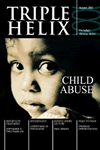'Stop listening to instruction, my son, and you will stray from the words of knowledge.'[1]
A new GP in the Netherlands treated a 78-year-old patient with a chronic illness and increasing breathlessness. Her life expectancy was two months. She asked him for euthanasia but he didn't like the idea of taking a life. Then, having prepared her family, she took an overdose. It failed. So again she asked her GP to end her life.
He knew he could refuse but believed that if he said no she would try suicide again, causing her more suffering should the attempt fail. So he agreed to her request and followed the correct procedure precisely. He came under considerable pressure from her family who wanted the death soon and at a convenient time. All his free time was taken up with the case and he felt stressed. On the day for her death he set aside the afternoon and sat with her family. He gave his patient a barbiturate potion to drink. He told her it was her decision whether or not to take it; he was merely offering it to her. As he saw it, she chose to end her own life and 45 minutes after taking the drink, she died.
A GP in the Netherlands can expect to carry out euthanasia about once every five years. The doctor in this case commented that he hoped it would be many, many years before he had to do so again. He had felt trapped into supporting the request because he had come to know her very well. He did not disagree with her decision but thought a person should have access to the means to take their own life without involving a doctor.
Another Dutch doctor told me she had decided she would not conduct euthanasia but after joining a practice she changed her mind. A patient with cancer had asked her about euthanasia and as she wanted to be involved in all aspects of the patient's care, she supported the request. She expressed a hope that she wouldn't have to do it again.
Without a sound set of moral principles to live by both these doctors found it impossible to resist the practice of euthanasia which had become acceptable in their society. Surprisingly, these GPs changed their view once the doctor-patient relationship was established. Once they had befriended a person, helping that person to die became a task they were willing to do. It became the compassionate option, a normal part of medicine.
If our medical practice is not built on the firm foundation of Christian teaching and a relationship with Jesus Christ we shall most likely follow the prevailing worldview and fail to uphold the sanctity of life. As Christians, we must learn to 'Trust in the Lord with all your heart and lean not on your own understanding'.[2] In the New Testament, James promises a blessing to all believers who look intently into God's perfect law and continue to follow it.[3] Caring, not killing, is the way of Christ.
































